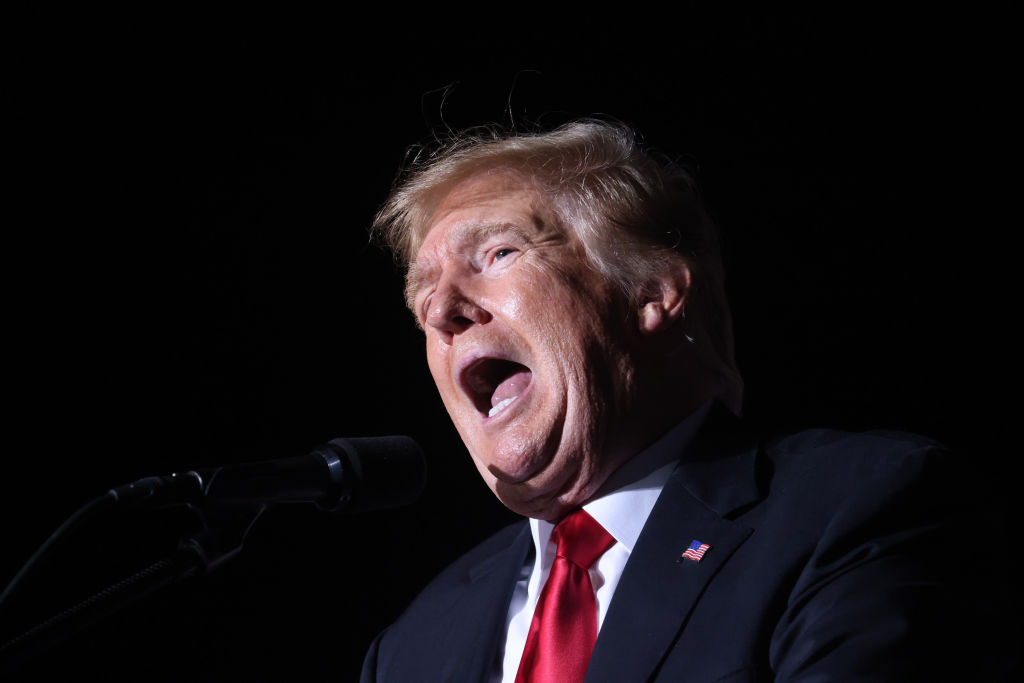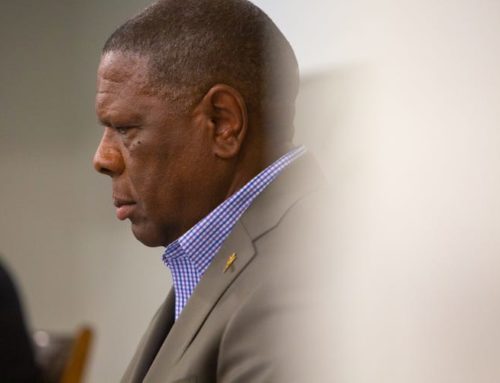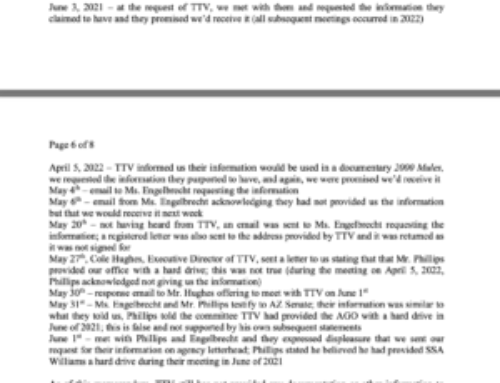This post was originally published on this site

By Jonathan C. Rothermel
The casual references to the empirically false claim of a 2020 stolen presidential election is a cancer on our democratic system. It is a cancer that threatens the health and well-being of U.S. democracy. The sanctity of elections is paramount to a thriving democracy, and if citizens cannot trust the mechanism by which the will of the people is executed, then our prognosis as a country is not good.
The validity of the 2020 election is not a debatable political issue like abortion or gun control are. Yet, in a recent Monmouth poll, 29 percent of Americans, including 61 percent of Republicans, still believe that President Joe Biden won due to voter fraud.
It is important to try to make sense of why so many people feel this way.
When most Americans went to bed on election night on Nov. 3, 2020, it appeared that Donald Trump was on his way to a second term. By the time folks woke up the next day, the situation had changed dramatically. For many Americans, the simple explanation was Biden votes were somehow “discovered” or simply “added” to the vote count illegally overnight – an obvious indication of fraud.
The U.S. Census reported that 43 percent of all voters cast their ballot by mail in 2020. In fact, the Biden surge was fully expected due to the higher proportion of mail-in and absentee ballots that went to Biden. According to the Pew Research Center, 58 percent of Biden voters voted by mail or absentee ballot versus 32 percent of Trump voters.
For America’s best lawyers, Trump is radioactive | Dick Polman
The sheer volume of mail-in ballots was a challenge for election officials, especially during a pandemic, who in most cases could not begin counting mail-in ballots until Election Day or even after polls had closed on Election Day.
According to the U.S. Constitution, individual states determine the time and manner of elections, which can be quite different from state to state. Unless one is familiar with this dynamic of federalism and understood that Biden voters were more likely to vote by mail, it is reasonable that Trump-supporting Americans would initially be concerned the day after the election.
To add to that concern, many Americans can relate a story whereby a deceased relative or person they know who moved outside of the state received a mail-in ballot. It is true that this occurred in several instances, but that alone does not equate to voter fraud.
The fraudulent act only occurs if that ballot is actually filled out and submitted. A comprehensive Associated Press investigation of voter fraud in the 2020 election identified less than 475 cases in six battleground states.
In addition, receiving an application for a mail-in ballot in some states, such as Pennsylvania, is the first step of the vote-by-mail process. This is sometimes confusing to people. In other words, simply receiving an application to vote by mail is not the same as receiving a mail-in ballot. In all but a handful of states, an application must first be submitted, and then a mail-in ballot is sent to the applicant.
Finally, so many Americans believe that the election was stolen because the political leaders who they admire and trust told them it was so. Donald Trump had already planted the seed of his intention not to accept the election outcome, in the event he lost, months prior to the election.
Unfortunately, Trump has used this as a way to galvanize his own political support as witnessed at the “Stop the Steal” rally on Jan. 6, 2021.
Beyond this, he now uses this claim as a litmus test for those seeking his endorsement. Sadly, grown men and women are forced to kiss the ring of Trump, while he basks in their idolatry towards him. During a rally in Ohio, Trump ridiculed Ohio Republican senatorial candidate, JD Vance, by saying that JD Vance was “in love” with Trump and is “kissing my a**” for support.
According to fivethirtyeight.com, “out of 552 total Republican nominees running for office, we found 201 who fully denied the legitimacy of the 2020 election.” Another 62 candidates raised questions and would not say whether the election was legitimate. This is not a good sign heading into the 2022 midterm elections.
DeSantis’ compassionless conservatism underscores urgency of real immigration reform
It was fair to initially raise concerns over the possibility of a fraudulent election in the immediate aftermath of the 2020 election. However, the time for relying on a gut-feeling, an isolated story that one heard, an unverifiable report, innuendo, or a politician who has something to gain by perpetuating a false narrative is over.
For the sake of our democracy, it is time to fully reckon with facts. Concerns over a fraudulent presidential election have been highly scrutinized and fully investigated, including by judicial court proceedings and even prominent conservatives. The empirical record has unequivocally shown that there is no truth to the widespread belief that the election was stolen.
Elections are the vanguard of a democracy. In 2016, despite winning the national popular vote but losing the Electoral College, Hillary Clinton conceded to Trump the day after the election. Two days after the election, then President Barack Obama invited President-elect Trump and his wife to the White House to help facilitate a smooth transition.
While many Republicans – including several among Trump’s own inner circle – have accepted the election outcome and repudiated the “stolen election” narrative, others are still clinging to it for their own political gain. It is up to the American people to call them out on this.
Acknowledging the validity of our electoral system does not take away one’s Republican card. In fact, perpetuating the false claim undermines Republicans legitimately held conservative views on actual debatable issues.
The upcoming 2022 midterm elections is a critical juncture. Will we be a country that continues down the path of illiberal democracy, or will we take back our democracy? Left untreated, the cancer that currently plagues US democracy will spread.
Opinion contributor Jonathan C. Rothermel is a political science professor at Commonwealth University-Mansfield. His work appears frequently on the Capital-Star’s Commentary Page. Readers may follow him on Twitter @ProfJCR.



